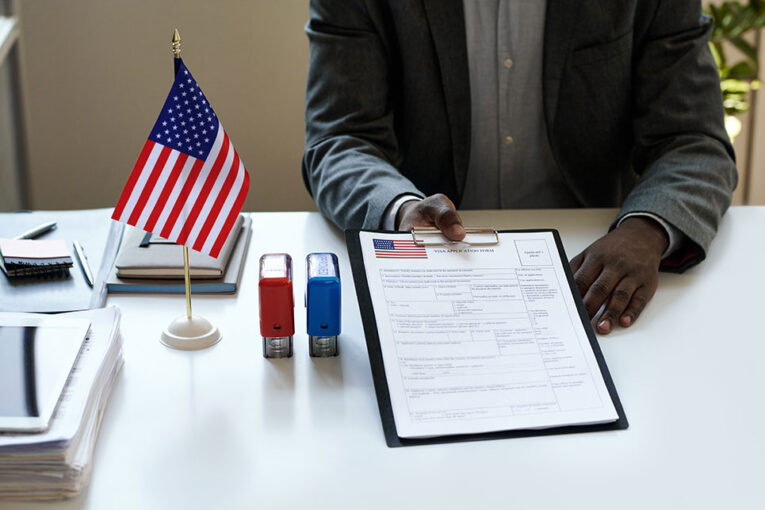In an age of global connectivity and digital communication, individuals and organizations often unwittingly cross into legal territory governed by foreign agent registration laws. In particular, the Foreign Agents Registration Act (FARA) imposes obligations on those who engage in political or public-relations activities on behalf of foreign principals. A foreign principal can include a foreign country, and activities or entities connected to a foreign country may trigger FARA registration requirements. Failure to register may result in serious consequences, including criminal prosecution.
For residents and entities in Colorado considering or already engaged in work connected with foreign interests, or even those who believe they might not be, understanding how FARA applies, paired with applicable Colorado law, is essential.
If you’re unsure whether your activities could trigger FARA registration, don’t wait until it becomes a problem. Contact Anzen Legal Group today at (970) 893-8857 to schedule a confidential consultation with a Colorado FARA attorney. We’ll help you evaluate your situation, clarify your obligations, and seek to protect you from costly penalties or enforcement actions.
What Is The Foreign Agents Registration Act (FARA) and When Does It Apply?
FARA requires that individuals or organizations acting “as agents” of foreign governments or principals in the United States register with the Department of Justice if they engage in covered activities. These generally include specified activities as defined by FARA, such as:
- Activities conducted on behalf of a foreign principal, including political lobbying or influencing U.S. public opinion, policy, or media
- Public-relations operations, media outreach, or promotion on behalf of foreign entities
- Solicitation of funds in the U.S. for foreign causes
FARA applies to activities conducted within the United States, even if the connection to the U.S. is minimal.
What factors can trigger FARA registration?
FARA registration may be required if:
- You act under the direction or control of a foreign principal, including as agency personnel.
- Your activities are “political” in nature, meaning they attempt to influence U.S. public policy or public opinion.
- Your efforts are public-facing or involve media outreach.
Even a single act, such as publishing a blog, running a social media campaign, or attending a meeting on behalf of a foreign principal, can trigger FARA registration requirements.
Could You Be Covered Without Knowing It?
At first glance, it might seem like only substantial or labeled foreign outreach triggers the law. However, FARA applies to a wide range of persons, including individuals, companies, and organizations. Many professionals, including consultants, writers, project coordinators, and even researchers, may inadvertently engage in registrable activity. Examples include:
- Producing content for a foreign funded initiative that addresses U.S. policy issues
- Receiving funding from abroad for advocacy or public communications projects
- Coordinating efforts, even informally, that support foreign political objectives
- Law firms, public relations firms, and public relations counsel may also be subject to FARA if their activities meet the criteria
Because intent is often inferred from the nature of the work and funding, persons may remain unaware they fall under FARA or fail to recognize when registration becomes necessary.
Colorado-Specific Considerations
Colorado law does not impose an independent foreign agent registration requirement, but awareness of FARA’s implications remains crucial, especially for businesses, universities, foreign companies, or nonprofits headquartered or operating here. Consider:
- Higher Education Institutions & Research Entities: Universities receiving foreign grants for policyrelated research may confront FARA triggers if the output influences U.S. policy perception. Exemptions may apply, such as the academic exemption for bona fide religious, fine arts, or scientific pursuits, provided the activities are nonpolitical and do not promote public or political interests.
- Lobbying Firms or Consultants: Firms in Denver or other Colorado municipalities must screen clients and projects for foreignsource direction or funding that could implicate FARA. The Lobbying Disclosure Act and the LDA exemption may be relevant for certain lobbying activities, but organizations must assess whether the exemption applies or if FARA registration is still required.
- Nonprofits and Charities: Organizations accepting funding from foreign philanthropists or foundations for publicpolicy work or communications should ensure appropriate disclosures and review to avoid violation. Private and nonpolitical activities, bona fide religious, fine arts, and scientific pursuits may qualify for exemptions, but only if the activities do not directly promote the political interests or public interests of a foreign principal.
Colorado’s economic and academic landscape, rich in international collaboration, makes diligence especially important. Local firms and professionals should evaluate contracts, funding sources, and communications to determine whether federal registration is required, including whether the principal beneficiary is a foreign government or political party, and if any commercial exemption or other statutory exemption applies for bona fide trade or nonpolitical activities.
Proper registrations and FARA compliance are essential to avoid violating FARA or FARA violations, especially given increased enforcement and scrutiny in recent years. Organizations should be aware of FARA filings, registered agents, and disclosure requirements for informational materials. Seeking guidance through advisory opinions or advisory opinion requests to the DOJ’s FARA registration unit, FARA unit, or National Security Division can help clarify obligations.
What Are the Consequences of FARA Non Compliance?
Failing to register under FARA could leave you to open significant penalties, including:
- Criminal Penalties: Willful violation may result in fines up to $250,000 and imprisonment for up to five years. Violating FARA can also lead to additional legal consequences, as FARA violations are subject to strict enforcement and prosecution.
- Reputational Harm: Media exposure of unregistered foreign involvement can lead to public distrust, loss of clients, or adverse regulatory scrutiny.
- Civil Remedies: The Department of Justice may seek injunctive relief or administrative sanctions under the FARA statute as the legal basis for enforcement.
Given Colorado’s robust business and academic sectors, an inadvertent violation can quickly escalate into high-stakes federal enforcement, including civil law enforcement inquiries, agency proceedings required by the DOJ, and judicial proceedings. The attorney general has the authority to require registration and oversee investigations related to FARA compliance.
Best Practices for FARA Compliance
To manage the risk of involuntary registry, consider the following steps:
Evaluate Activities and Funding Sources
- Review contracts, grants, and project scopes for ties to foreign principals.
- Ask whether deliverables or communications influence U.S. opinion or policy.
Maintain Clear Documentation
- Keep records of decision-making, sources of direction or payment, and communications.
- Maintain records of all informational materials distributed, as these may need to be disclosed under FARA compliance requirements.
Consult Before Public Outreach
- Before launching media campaigns, conferences, or testimony influenced or funded externally, seek review, even if you’re unsure whether FARA applies.
- A FARA attorney can advise you on whether the campaign requires registration and help you through the process.
Train Staff and Stakeholders
- Where relevant, such as university departments or grant receiving teams, provide basic FARA awareness and escalation paths.
Engage Counsel Early
- Legal counsel familiar with FARA can help assess whether disclosure or registration is required and assist with timely FARA filings and registrations with the FARA registration unit or FARA unit.
- Legal representation is critical, especially in determining whether your activities fall within the scope of normal legal representation, which may be exempt from FARA registration.
Seek Guidance from Authorities
- When in doubt, consider submitting advisory opinion requests to the DOJ’s FARA unit for formal guidance.
- Advisory opinions can clarify whether your activities trigger FARA compliance obligations.
Crafting a Colorado Focused Compliance Strategy
For Colorado based entities, the following framework may help:
| Step | Action |
| A. Internal Audit | Identify all ongoing or planned projects involving foreign funding or direction, including any specified activities as defined by FARA. |
| B. Risk Assessment | Determine if any such activities involve political or public influence objectives, and assess whether exemptions may apply or if an exemption applies to avoid registration. |
| C. Counsel Engagement | If risk exists, consult counsel experienced in federal registration obligations, including the use of advisory opinions and advisory opinion requests to the DOJ for guidance. |
| D. Implement Policies | Adopt protocols for evaluating and documenting potential FARA covered activities. Ensure policies address the need for FARA compliance and full compliance with all statutory requirements. |
| E. Monitor & Train | Periodically review new partnerships, projects, and train staff on FARA considerations, including ongoing FARA filings, registrations, and updates from the FARA registration unit or FARA unit. |
This framework supports proactive compliance with FARA’s registration requirements.
Frequently Asked Questions (FAQ) About Eminent Domain
What exactly qualifies as a “foreign principal” under FARA?
A “foreign principal” may include a foreign government, foreign political party, foreign person (e.g., individual, corporation, or association), or anyone outside the U.S. who directs or finances your work—or from whom you receive guidance related to political activities.
Does academic research or grant writing trigger FARA?
Only if the output is directed at influencing U.S. public opinion, policy, or media—and if you are acting in consultation with, or receiving direction from, a foreign principal. Pure academic research without public policy advocacy typically does not require registration. There are exemptions, including the academic exemption for bona fide religious, fine arts, and scientific pursuits, provided the activities are not political in nature.
Is receiving personal sponsorship from a foreign national for travel an issue?
Not automatically—but if that travel involves public policy advocacy, speeches, or representational activities on behalf of the foreign sponsor, FARA may apply.
How long does FARA registration last?
Once registered, you must remain registered while the activities continue and file periodic disclosures. If the representation ends, you may seek to terminate the registration, but transitional obligations often apply.
Does Colorado law require anything similar to FARA?
No. Colorado has no separate registration requirements for foreign agents. However, federal obligations under FARA still apply to anyone conducting covered activity within the state.
Can a non-profit register under FARA?
Yes. Organizations, including nonprofits and universities, must register if their activities meet the threshold, regardless of their charitable or educational nature.
What if I filed late or made errors in my FARA submission?
Late filing or incomplete disclosure may result in penalties or enforcement action. However, self-reporting and corrective filings, especially when made promptly, are often viewed more favorably. That said, legal advice is essential to avoid mistakes and to promptly address any existing mistakes.
Does lobbying for a foreign company always require FARA registration?
Not always. There are exemptions, such as the commercial exemption for bona fide trade or commerce activities, and the LDA exemption, which allows registration under the Lobbying Disclosure Act instead of FARA in certain cases.
What is the FARA registration process?
The process involves submitting FARA filings to the Department of Justice, completing registrations, and designating registered agents to represent the foreign principal.
What must be disclosed under FARA?
You must disclose the nature of your relationship, activities, and financial arrangements with the foreign principal, as well as any informational materials distributed in the U.S.
How can I get guidance on whether FARA applies to my activities?
You may seek guidance from the DOJ’s FARA Unit. Advisory opinions are available as a resource to help clarify whether your activities require registration. A FARA lawyer can also clarify your obligations and submit any necessary filings and documentation as well as advise you on ongoing compliance.
It is possible to find yourself subject to FARA without recognizing it, especially in Colorado, where academic, business, and cultural intersections often implicate foreign funding or direction. University researchers, consultants, nonprofits, and business entities should implement internal safeguards, engage with legal counsel when questions arise, and ensure that registration is handled proactively. Full compliance with FARA requires timely FARA filings and registrations as part of overall FARA compliance.
Schedule A Consultation With An Experienced FARA Attorney.
If you are based in Colorado and suspect your projects, relationships, or funding may implicate FARA, do not delay. Comprehensive review of your arrangements, documentation, and public communications plans is critical to reduce risk.
Contact Anzen Legal Group today for a thorough review of your situation and tailored guidance on any necessary registrations and disclosures. Our attorneys are committed to protecting Colorado organizations and individuals facing complex regulatory challenges. We provide clear, responsive support to help you determine whether foreign agent registration is necessary and to assist with filings if needed.
Through careful attention to FARA requirements and proactive guidance, you can manage risk and protect your interests. Please reach out to Anzen Legal Group for a confidential discussion about your situation, because when it comes to compliance, clarity matters.





